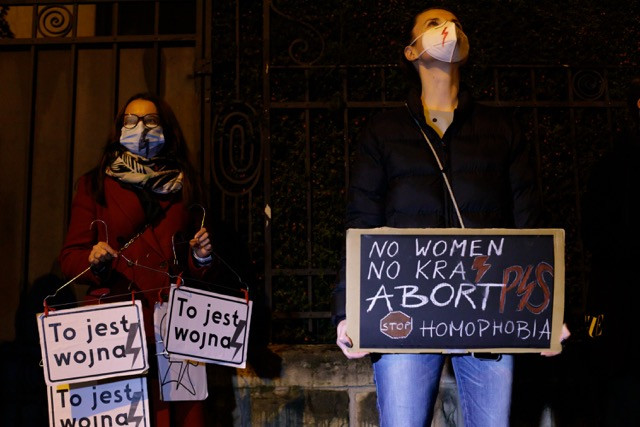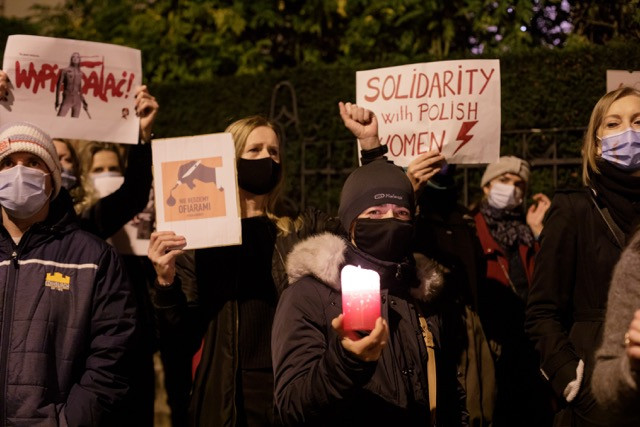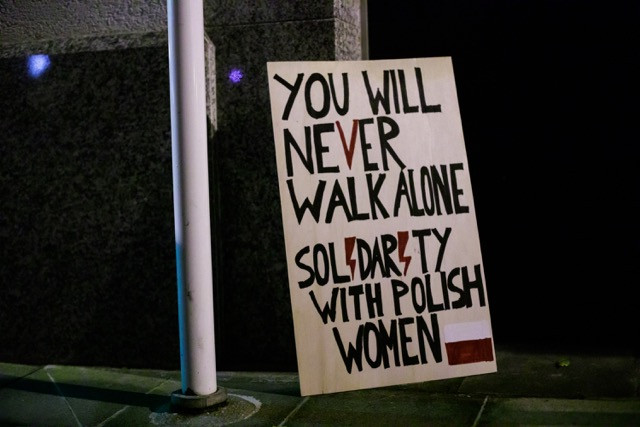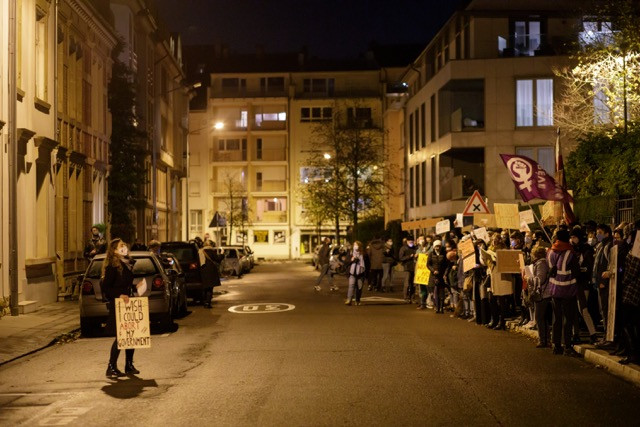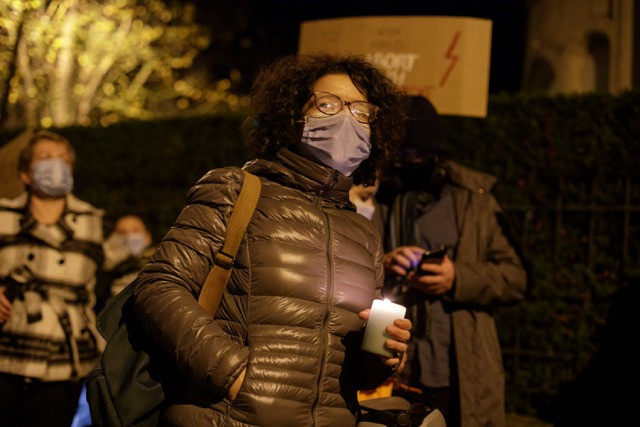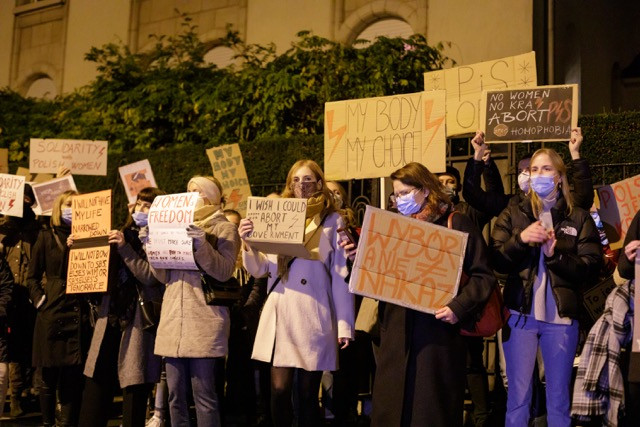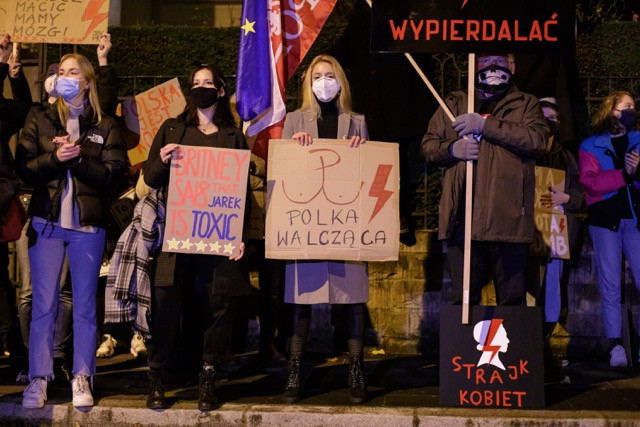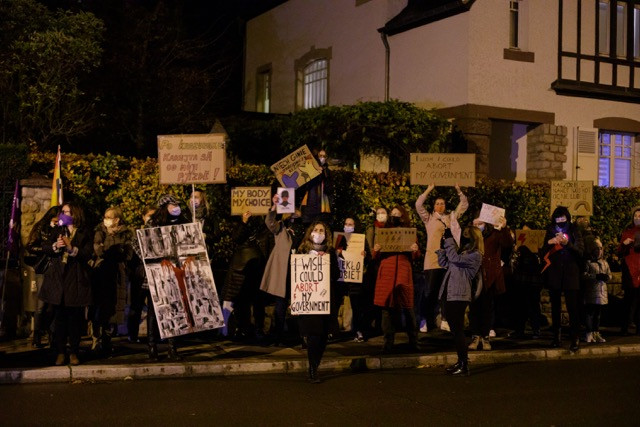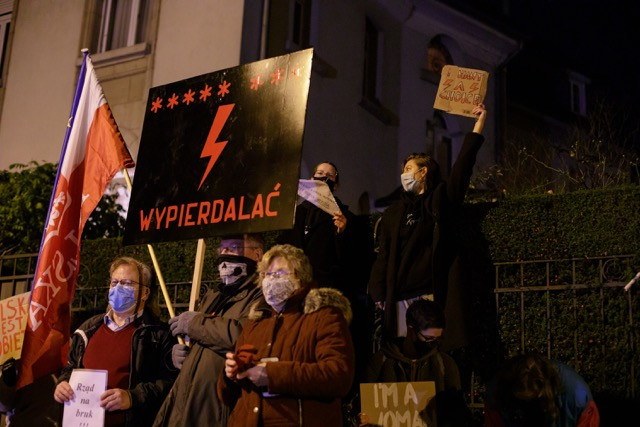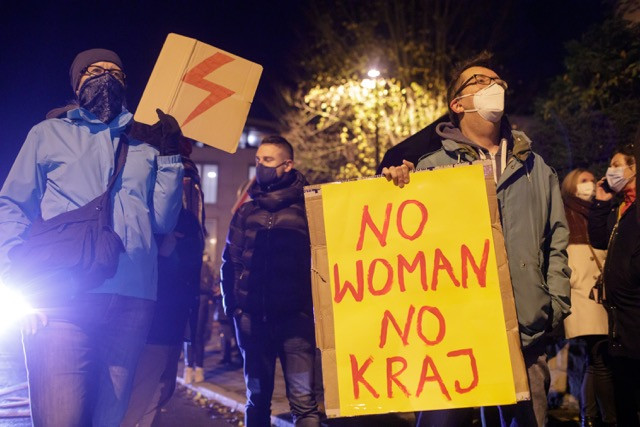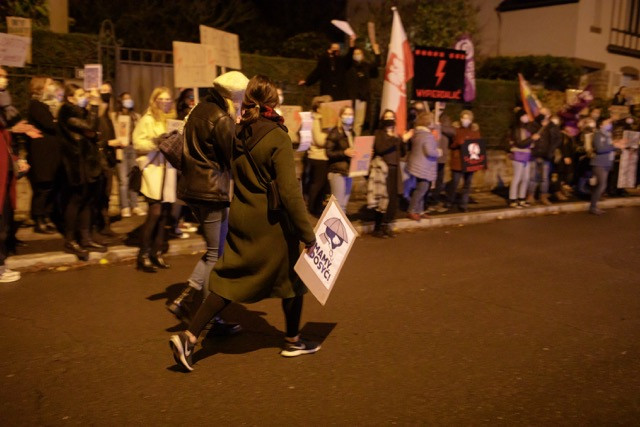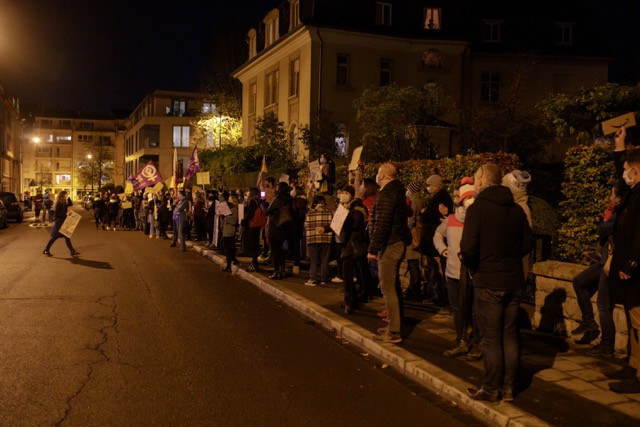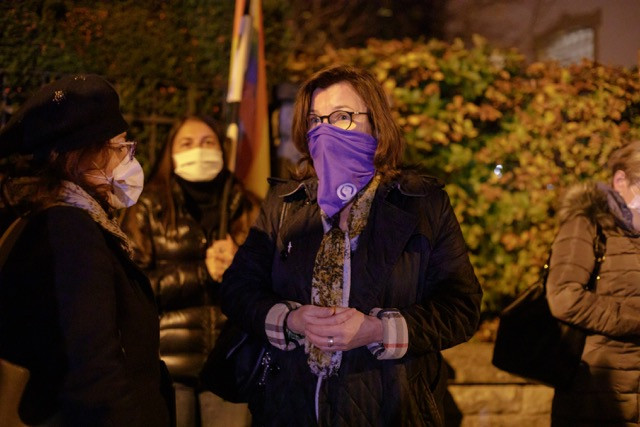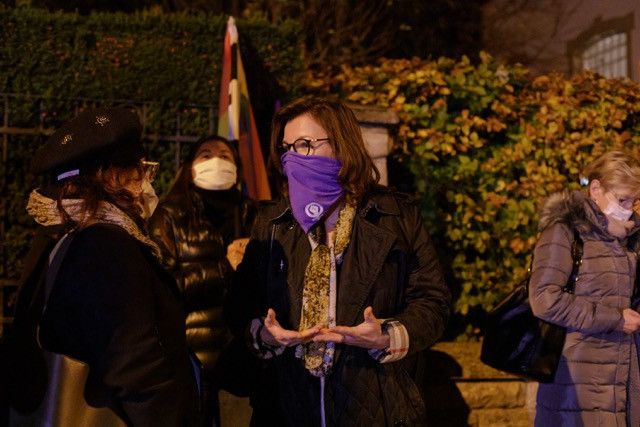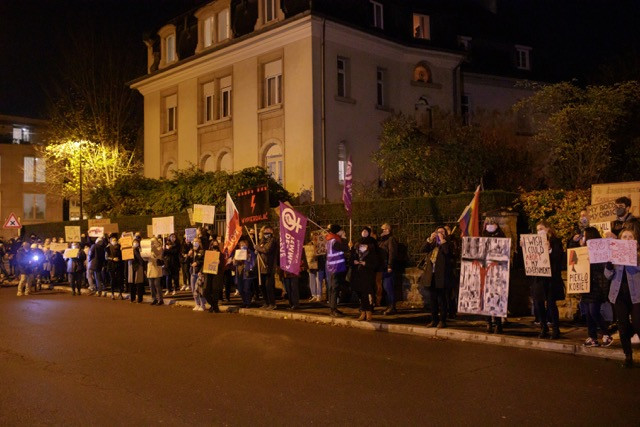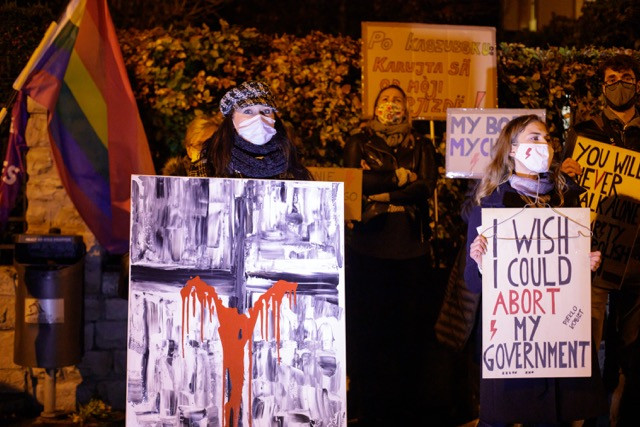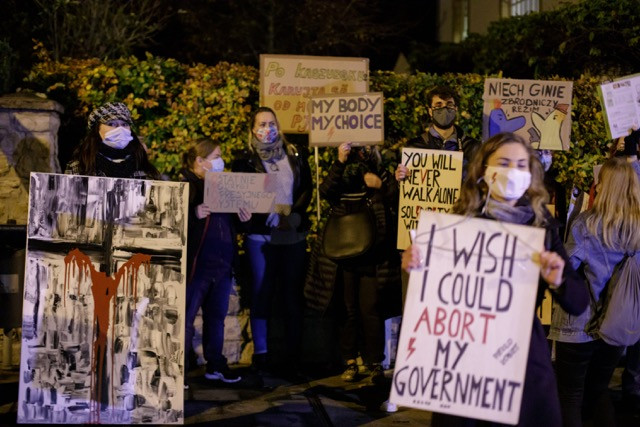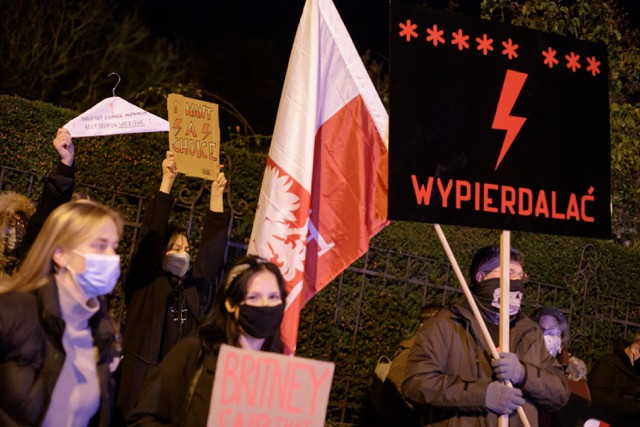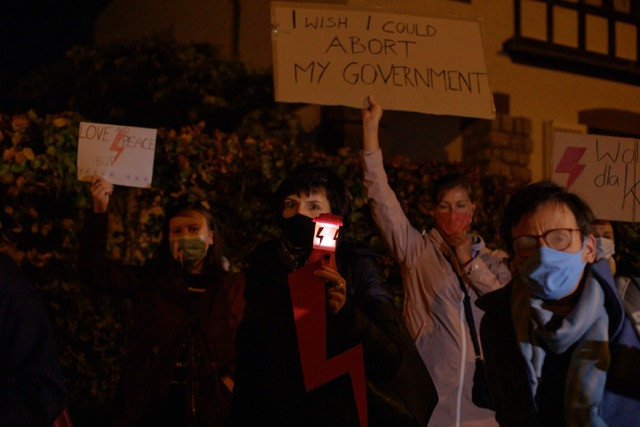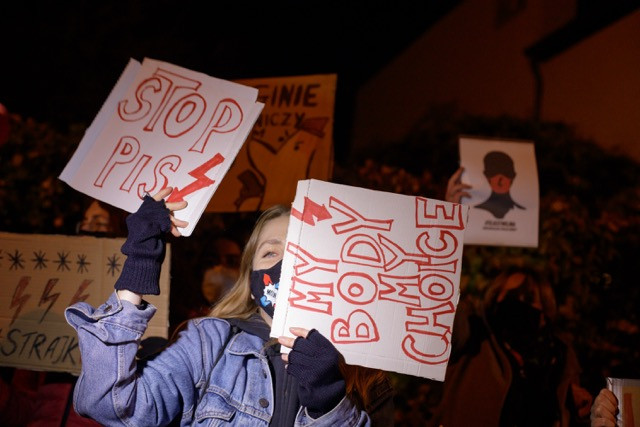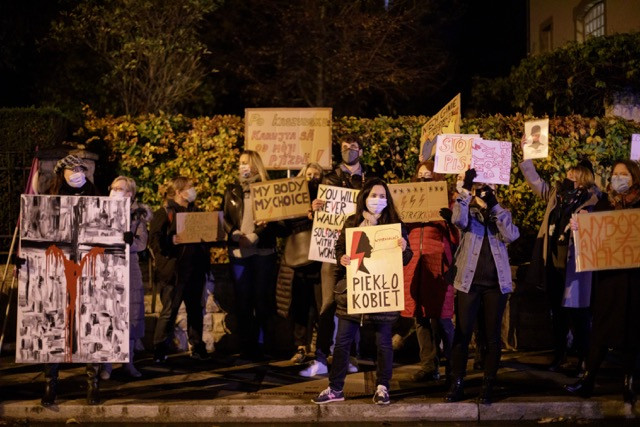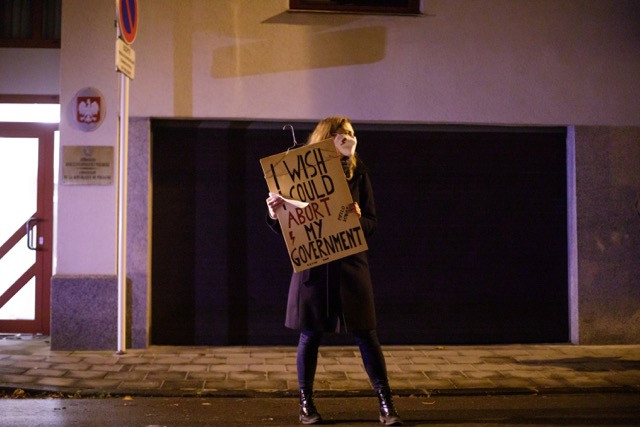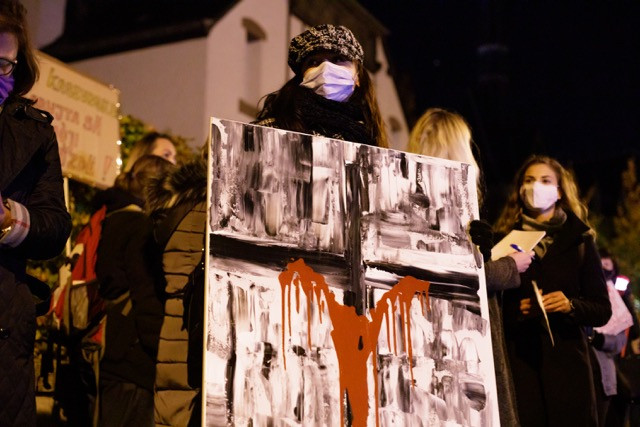The first demonstration was held during the day on 28 October, just two days before new abortion restrictions were due to enter into force constituting an almost total ban on abortion. The ruling permitted the use of abortion only in cases of rape, incest or where a mother’s life or health is at risk. According to the FT, such cases accounted for just 2.4% of legal abortions in 2019.
Hundreds of thousands of people have taken to the streets in Poland in protest against the restrictions, a statement that the international community in Luxembourg wanted to show solidarity with. “In general, it’s about the possibility to decide yourself about your life and body, to have your own choice and not have that choice imposed by politicians. I think we deserve to have that choice in the twenty-first century,” Anna Sowada, a Polish national living in Luxembourg who participated on Tuesday, told Delano.
“It’s nice that it was not only women protesting but also men and the families of the women. Also, among the international people, not only women came but also men came to support us because, I think, it’s becoming more symbolic about human rights and other countries facing problems with right-wing ruling parties,” Sowada added.
The abortion ruling has yet to be published by Poland’s Government Legislation Centre, which means it has not entered into law. According to the FT, the ruling Law and Justice party, known as Pis, and coalition partners are discussing a proposal by president Andrzej Duda to reinstate a right to abortion when there are fatal foetal abnormalities. On Tuesday, Pis MPs voted to postpone discussions for two weeks, reportedly because of the pandemic.
Sowada said she believed further protests were planned for Luxembourg.
